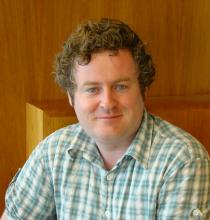Blog
Crossing over silos in genomics research
Karine Morin, Director, National GE3LS Program, Genome Canada
Silos, to many delegates who will attend Congress 2014, refer to insular thinking. To a few, they may evoke Canada’s agricultural tradition. It would seem unlikely that an exploration of the figurative term as well the literal one could happen at once during a session of Congress, but under the theme Borders without Boundaries, such an opportunity may not be so farfetched. In fact, considering how few life scientists will be traveling to Brock University to discuss advances in genomics, it may well seem more implausible that Genome Canada would participate in this year’s event. Yet those curious to learn how genomic research and innovation and the social sciences and humanities intersect should stop by our booth or attend one or both sessions sponsored by Genome Canada.
...
The curious story of Research Matters
Patchen Barss, Creative Director and Managing Editor, Research Matters
The first question I really remember being curious about was, “How fast does gravity travel?”
I was a teenager. I stood on a bathroom scale and picked up a heavy book. The dial moved a half a pound. The book was several feet from the scale. Did the scale “know” instantaneously when I picked up the book, or did the information have to travel the length of my body?
Even then, I knew the effect couldn’t be instantaneous – that would mean information was traveling faster than the speed of light, and Albert Einstein had put the kibosh on that possibility way back in the early 20th century. So did the information about the weight of the book travel at the speed of light? More slowly? How was the information actually transmitted? If I held the object out at arm’s length, did its weight to travel a longer distance through my body, or did it go in a straight line from...
Focus on copyright issues in academia at Congress 2014
Blayne Haggart, Assistant Professor, Political Science, Brock University
 Copyright laws affect almost every aspect of academics’ professional lives, from limiting how much of a book we can put in a course pack to allowing journals to put our (mostly publicly-funded) research behind paywalls. It affects how we teach, research and publish, to say nothing of tuition fees and university budgets.
Copyright laws affect almost every aspect of academics’ professional lives, from limiting how much of a book we can put in a course pack to allowing journals to put our (mostly publicly-funded) research behind paywalls. It affects how we teach, research and publish, to say nothing of tuition fees and university budgets.
Although copyright law is complex, the issues are straightforward.
Where should Canada draw the line between protection and limiting copying, and the need to have knowledge communicated as widely as possible? What should Canadian copyright look like, if we want to encourage Canadian scholars to create and communicate in a 21...
Reinventing the language of storytelling at Congress
Kristine Collins, Director, Education and Institutional Markets, National Film Board of Canada
The National Film Board of Canada is proud to be part of CONGRESS 2014 as we celebrate our 75th anniversary. Our films, interactive productions and educational resources connect to the conference themes in so many ways it was challenging to choose just one focus, so we didn’t!
In an exclusive evening event, we will be showcasing Highrise, the Emmy-winning interactive documentary that explores the human condition of vertical living around the globe, created by the NFB’s filmmaker in residence Katerina Cizek. Katerina will be joined by Kristine Collins, Director of Education at the NFB, and Dr. Deborah Cowen, Associate Professor of Geography at the University of...
Catch the Top 25

People-focused research matters. How you tell its story is just as important.
The Social Sciences and Humanities Research Council (SSHRC) launched its second-annual Storytellers challenge this past November, asking postsecondary students from across the country to demonstrate—in three minutes or 300 words—how a SSHRC-funded research project at their institution is making a difference in the lives of Canadians.
...
